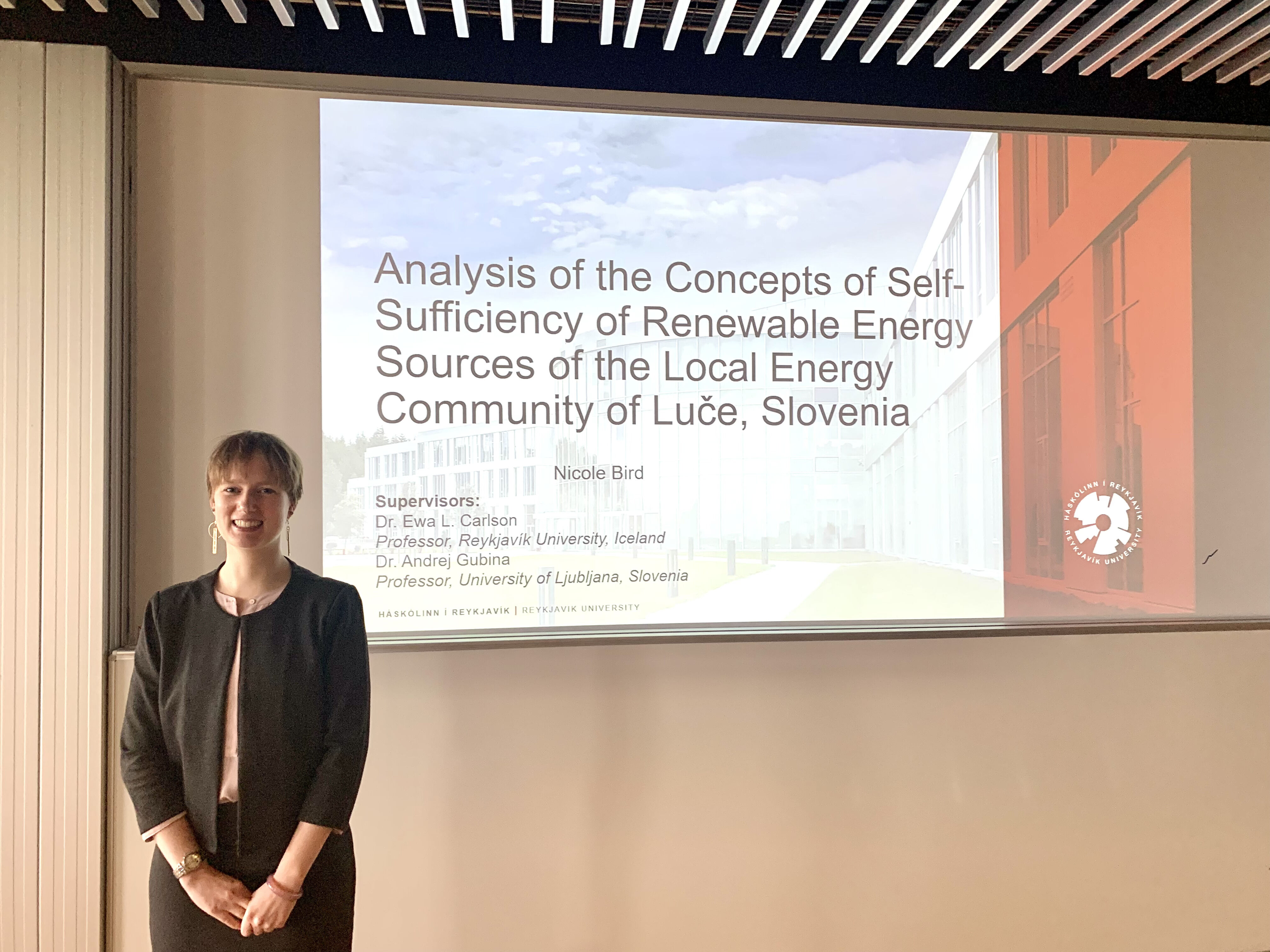MSc Thesis: Analysis of the Concepts of Self-Sufficiency of RES of the Local Energy Community of Luče, Slovenia
REYKJAVIK, June 3 - MSc in Sustainable Energy candidate, Nicole Bird, successfully defended her master's thesis where she investigates the concepts of self-sufficiency of RES of the local energy community of Luče, Slovenia. Nicole's work was supervised by Dr. Ewa L. Carlson from Reykjavík University and Dr. Andrej Gubina from University of Ljubljana in Slovenia. Examination was conducted by Dr. Magni Palsson, R&D Program Director at Landsnet in Iceland.

Nicole starts off by emphasizing the fact that communities play a vital role in energy transition. As countries strive to reach climate goals outlined in the national legislature in accordance with the Paris Agreement, energy communities have been established as a means to incorporate renewable energy technologies into the energy mix. Energy communities are established by community members who want to generate their own energy to address issues such as power outages and grid instability, in which renewable energy technologies are integrated into the local energy mix. Nicole states one of the goals energy communities aim to achieve, which is to become self-sufficient, maintain reliable local energy production and have less dependence on the national grid.
She sets up her work by stating the information presented: from battery storage, to weather and seasons, energy community size, and power quality; all factors relevant for the optimization of the self-sufficiency of energy communities. She bases her work on literature review along with data analysis from an energy community in Slovenia. She also discusses the optimal structure of the energy community as it pertains to the case study of Luče. Nicole investigates these factors by analyzing different scenarios regarding the size of the energy community, i.e., the production and consumption profiles, and the effect of weather variables, i.e., rain, cloud cover, etc., and battery storage by comparing the self-sufficiency profiles of the buildings with batteries and the buildings without batteries using Python.
Nicole's results show battery storage, weather and seasons, consumer behavior, and policies are factors that affect the self-sufficiency of the case study of Luče energy community. Self-sufficiency of the energy community improved by about 10-20% depending on the time of year when high consuming buildings were removed from the profiles. Due to complexities surrounding the energy flow from and to the community battery, Nicole disregards the community battery in the battery storage analysis, which results in inconclusive data regarding the self-sufficiency of the household batteries. She recommends future studies that include completion of an assessment incorporating the community battery, and conducting scenarios regarding the size energy community and the impact of adding individual batteries to the buildings.
Congratulations Nicole on an excellent thesis defense!
